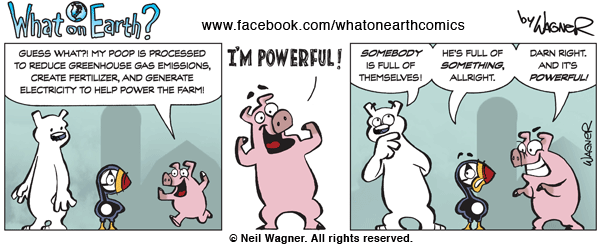
"Too big to fail," became a four-word cautionary tale with the advent of our current global economic crisis. That same tale could be told about our energy needs. Fossil fuels are the lifeblood of modern civilization. They are also the biggest threat to civilization as we know it, thanks to their effect on our climate.
If we've learned our lesson, we'll avoid continuing to put all our energy eggs in one basket.
"A truly sustainable portfolio of renewable energy technologies requires a wide range of integrated systems -- there is no single solution. We need a comprehensive, local-global renewable energy system that can be realized in our lifetimes," says Dr. Peter J. Schubert, director of the Richard G. Lugar Center for Renewable Energy.
Dr. Jennifer Holmgren, CEO of energy tech company LanzaTech says, "I believe that regional solutions need to become a more important part of the future energy pool... There will be no single solution to this challenge."
California, for instance, is ideal for tapping into geothermal. The Southwest is well suited to solar, while other areas can better exploit wind or hydro.
Researchers are also looking beyond nature's renewable resources in the quest for greener energy. Waste water, underground subways and photosynthesis are all being explored. As is, of course, poop.
Yes, poop, which is now being put to good use thanks to Duke University's new Carbon Offsets Initiative. The program, funded by Duke University, Duke Energy and Google, has been working with North Carolina's Loyd Ray Farms to process the 400,000 gallons of manure produced by the farm's 9,000 hogs each week.
The process is pretty simple. An anaerobic digester uses bacteria to consume the manure and release methane gas, which is then burned to power a 65-kilowatt microturbine. Here are some of the benefits of this carbon-neutral process:
- It provides half the farm's electricity
- Greenhouse gas offsets and renewable energy credits are being enjoyed by Google and the University
- The hogs' health is improved
- The manure can be used as fertilizer (whereas it's too nitrogen-rich to do so before processing)
- Water used in the process can be used for irrigation or other purposes
There is another benefit as well -- less noses are offended at the farm these days.
? ? ? ? ? ? ? ? ? ? ? ? ? ? ? ? ? ? ? ? ? ?
Like "What on Earth?" on Facebook. Become a Fan here at The Huffington Post.
?
Source: http://www.huffingtonpost.com/neil-wagner/this-little-piggy-made-energy_b_1228289.html
morgellons touch greg kelly arizona governor rihanna thug life tattoo amityville horror patrick witt
No comments:
Post a Comment
Note: Only a member of this blog may post a comment.